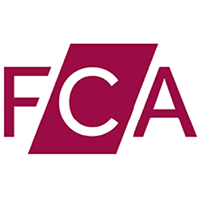In the ever-evolving world of financial markets, online brokers have become the backbone of modern investing, enabling individuals to participate in the stock market with unprecedented ease and flexibility. Gone are the days when investing was limited to institutional players or required phone calls to a personal broker — today, a retail investor can execute trades, analyze financial data, and manage a diversified portfolio, all from a smartphone.
As we move deeper into 2025, the stock trading landscape is more dynamic, data-driven, and democratized than ever before. Technological advancements such as AI-powered analytics, algorithmic trading tools, and real-time portfolio tracking have transformed the way investors interact with financial markets. In this environment, the role of a competent online broker is not just to execute trades, but to empower users with the tools, resources, and knowledge needed to navigate increasingly complex market conditions. This comprehensive guide aims to dissect the most critical factors to consider when selecting an online stock broker — whether you're a complete beginner looking for simplicity and education, or a seasoned trader in need of powerful analytics and low latency execution. We’ll explore the essential criteria that define today’s best brokers and highlight what sets top-tier platforms apart in a saturated and competitive marketplace.

Overall Rating

Commissions Rating

Conditions Rating

Charles Schwab is a renowned name in the financial services sector, primarily known for its brokerage services. Founded in 1971 by Charles R. Schwab, the company began as a traditional brokerage firm and transformed into one of the pioneers of low-cost investing in the early 1970s.

Overall Rating

Commissions Rating

Conditions Rating

Merrill Edge is a prominent online brokerage platform that forms part of Bank of America's wealth management division. Launched in 2010, Merrill Edge was created to provide self-directed investors with integrated banking and investing capabilities.

Overall Rating

Commissions Rating

Conditions Rating

TD Ameritrade is a well-known brokerage firm, renowned for its trading platforms, investment offerings, and robust customer service. It was established in 1975, originally under the name First Omaha Securities, Inc., a nod to its roots in Omaha, Nebraska.

Overall Rating

Commissions Rating

Conditions Rating

Interactive Brokers (IBKR) stands as one of the most respected and widely used brokerage firms in the world, catering primarily to experienced traders and institutional investors. Founded in 1978 by Thomas Peterffy, Interactive Brokers began as a market maker before transitioning into the brokerage business.

Charles Schwab is a renowned name in the financial services sector, primarily known for its brokerage services. Founded in 1971 by Charles R. Schwab, the company began as a traditional brokerage firm and transformed into one of the pioneers of low-cost investing in the early 1970s. This transformation was pivotal as it aligned with the U.S. Securities and Exchange Commission's decision to eliminate fixed brokerage commissions, which allowed Schwab to innovate and reduce costs for investors.
The firm went public in 1987 and has since expanded its offerings to include not only brokerage services but also banking, wealth management, and financial advisory services. Headquartered in San Francisco, Charles Schwab has played a significant role in making investment more accessible to the public. This democratisation of investing has been facilitated by the company’s commitment to leveraging technology, which allowed it to offer online trading in the early 1990s, setting a new standard for the industry.
Charles Schwab's growth strategy includes significant acquisitions, such as the purchase of TD Ameritrade in 2020, further solidifying its market position. The firm is known for its robust financial advice and has been a significant player in reducing costs associated with investing, influencing the entire industry to follow suit.
Charles Schwab is regulated by several top-tier financial authorities, including the Securities and Exchange Commission (SEC) and the Financial Industry Regulatory Authority (FINRA) in the United States. Additionally, Schwab is a member of the Federal Deposit Insurance Corporation (FDIC), which insures bank deposit accounts.
These regulators are highly respected and are considered some of the most stringent in the world. The SEC oversees securities transactions, activities of financial professionals and mutual fund trading to prevent fraud and intentional deception. FINRA, a non-governmental organization, regulates brokerage firms and exchange markets, ensuring that everything runs fairly and honestly. The presence of FDIC insurance helps protect banking customers by covering the loss of deposit accounts in the event of a bank failure.
The stringent regulatory environment in which Charles Schwab operates ensures that they maintain high standards of financial integrity and transparency. These regulations are comprehensive and designed to protect investors from fraud and abuse, making Charles Schwab a trustworthy platform for financial investment.
Advantages
Disadvantages
Charles Schwab is known for its low-cost pricing model, which includes no commissions on stock and ETF trades and no fees for opening or maintaining an account. Options trades are also competitively priced with a small per-contract fee. For larger investors, Schwab offers tiered pricing plans which can reduce costs further, depending on the account balance and trading volume.
Schwab is renowned for its customer service, which includes 24/7 support through phone, email, and live chat. Additionally, their physical branches provide face-to-face consultations. Investment options at Schwab are extensive, covering everything from traditional stocks and bonds to more sophisticated instruments like futures and options.
The quality of customer support at Charles Schwab is generally considered exceptional. The firm's commitment to comprehensive support ensures that clients' queries are resolved timely and effectively. In summary, Charles Schwab is a well-regarded broker that offers a wide range of tools and services. Its commitment to low-cost trading, combined with robust customer service and comprehensive regulatory oversight, makes it a reliable choice for investors of all levels.

Merrill Edge is a prominent online brokerage platform that forms part of Bank of America’s wealth management division. Launched in 2010 following the acquisition of Merrill Lynch by Bank of America, Merrill Edge was created to provide self-directed investors with integrated banking and investing capabilities. Its inception marked a strategic move to bridge the gap between traditional wealth management and modern online trading.
With its strong connection to Bank of America, Merrill Edge offers a seamless experience for users who already bank with BofA, allowing them to manage both investment and banking accounts in one place. Over the years, the platform has evolved to serve a broad range of investors — from casual traders to those seeking in-depth research and financial guidance.
Merrill Edge’s platform is best known for its ease of use, quality customer service, and strong educational resources. Although it primarily focuses on U.S.-based investment opportunities, its integration with the Merrill Lynch infrastructure gives it a more robust backend than many standalone online brokers.
Merrill Edge is regulated by major U.S. financial authorities, including the Securities and Exchange Commission (SEC) and the Financial Industry Regulatory Authority (FINRA). As part of Bank of America, it is also insured by the Federal Deposit Insurance Corporation (FDIC) for applicable banking services.
These regulatory bodies provide a high level of oversight, ensuring that Merrill Edge adheres to strict compliance standards for investor protection, transparency, and operational integrity. Being under the umbrella of a large, systemically important financial institution like Bank of America adds another layer of security and trust.
Merrill Edge provides access to two main platforms: the Merrill Edge website and Merrill Edge MarketPro, the latter of which is designed for more active traders. MarketPro offers real-time data, advanced charting, custom watchlists, and streaming news. The mobile app mirrors much of the desktop functionality, allowing for on-the-go portfolio management and trading.
Merrill Edge follows a highly competitive pricing model:
Clients in the Preferred Rewards program can also benefit from reduced fees, personalized support, and better interest rates depending on their combined balance with Bank of America and Merrill.
Merrill Edge is highly regarded for its customer service. Clients can access support via phone, live chat, and in-person at over 2,000 Bank of America financial centers. The platform also offers a virtual assistant and educational webinars.
Investment options include:
Customer satisfaction scores are generally high, and the integration with BofA allows for greater convenience and cross-product benefits.
Merrill Edge stands out as a top choice for Bank of America customers and investors looking for a low-cost, research-rich brokerage experience. Its powerful ties to a major banking institution, high-quality research, and no-commission structure make it an excellent option for self-directed investors and those who value integrated financial services. While it may not satisfy the needs of professional traders, its balanced offering is ideal for the majority of retail investors.

Fidelity Investments is a major American multinational financial services corporation founded in 1946. Its origin traces back to the establishment of the Fidelity Fund, a mutual fund launched by Edward C. Johnson II in Boston, Massachusetts. Since then, Fidelity has grown into one of the largest asset managers worldwide, managing trillions in assets across a wide spectrum of products. The firm’s commitment to value and innovation in investment management has played a pivotal role in its growth and popularity among investors.
The company expanded significantly during the 1980s and 1990s under the leadership of Edward C. Johnson III, introducing groundbreaking tools such as checkwriting services for money market funds and launching Fidelity.com, one of the first brokerage websites. These innovations established Fidelity as a leader in technology-driven investment services.
Today, Fidelity offers a range of services including fund distribution and investment advice, wealth management, retirement services, cryptocurrency services, and brokerage services. It serves more than 30 million individuals and institutional clients. The firm is privately owned and remains under the control of the founding Johnson family, which has helped maintain its focus on long-term customer value and innovation.
Fidelity Investments is regulated by top-tier authorities such as the Securities and Exchange Commission (SEC) and the Financial Industry Regulatory Authority (FINRA). These regulatory bodies are instrumental in overseeing the operations of financial entities to ensure transparency and fairness in the market. The SEC, as a government agency, ensures that market participants act according to the laws, providing security against fraud and deceit in securities transactions. FINRA, a non-governmental organization, regulates brokerage firms and exchange markets to protect investors by maintaining fair and equitable trade practices.
Given the stringent requirements and regular oversight by these bodies, Fidelity is regarded as a highly trustworthy and reliable brokerage and financial advisory firm. Their regulation by these respected authorities reassures investors of their commitment to ethical financial practices and client security.
Advantages
Disadvantages
Fidelity uses advanced technology in their trading platforms like Fidelity.com and the Fidelity Mobile App, both designed to offer investors a seamless and efficient trading experience. They also provide Active Trader Pro, a customizable desktop platform that suits active traders with more advanced analysis and trading capabilities.
The commission structure at Fidelity is designed to be investor-friendly with free stock, ETF, and options trading. Options contracts have a competitive fee per contract. The firm does not require a minimum deposit to open a brokerage account, further lowering the entry barrier for new investors.
Customer service at Fidelity is highly rated, with support available 24/7 via chat, email, or phone. Their extensive network of over 200 investor centers also provides an option for face-to-face interaction and support.
Fidelity offers a wide range of investment options including stocks, bonds, ETFs, mutual funds, and options. They also provide opportunities to invest in sectors like technology, health care, and environmental, social, and governance (ESG) focused funds. Fidelity stands out with its offerings in managed funds, including Fidelity Flex mutual funds, which have no expense ratio and are exclusive to certain accounts.
Fidelity is recognized for its excellent customer support, which is responsive and helpful. The firm is committed to providing quality service and resolving client issues promptly. Fidelity Investments is a well-established leader in the financial services industry with a robust offering that caters to both casual and serious investors. Its commitment to zero commission fees, comprehensive investment options, and top-tier customer service make it a top choice for those seeking a reliable and expansive trading platform. The oversight by stringent regulatory bodies only adds to its reputation as a secure and trustworthy brokerage.

TD Ameritrade is a well-known brokerage firm, renowned for its trading platforms, investment offerings, and robust customer service. It was established in 1975, originally under the name First Omaha Securities, Inc., a nod to its roots in Omaha, Nebraska. The company was a pioneer in the brokerage industry, becoming one of the first firms to offer discounted commissions at a time when the concept of a discount brokerage was virtually unheard of. The company underwent several name changes, becoming TransTerra Company in 1981, then Ameritrade in 1997, and eventually TD Ameritrade in 2006 following a merger with TD Waterhouse USA, a subsidiary of the Canadian multinational Toronto-Dominion Bank. This merger marked a significant step in the company's history, expanding its customer base and services significantly. TD Ameritrade has been at the forefront of technology in the brokerage industry. It was one of the first to offer touch-tone phone trading in the 1980s and online trading in the 1990s, adapting early to technological advances and changing investor needs. This adaptability contributed to the company's growth, helping it to survive and thrive through various market conditions and regulatory changes.
Throughout its history, TD Ameritrade has focused on innovation and customer service, catering to both active traders and long-term investors. The company offers a wide range of services, including common stock and derivatives trading, mutual funds, and financial planning services. In 2020, it was acquired by Charles Schwab Corporation, although it continues to operate under the TD Ameritrade brand with its distinct offerings.
TD Ameritrade is regulated by top-tier authorities such as the Securities and Exchange Commission (SEC) and the Financial Industry Regulatory Authority (FINRA). Additionally, it is a member of the Securities Investor Protection Corporation (SIPC), which provides up to $500,000 in coverage per customer for cash and securities in the event of a brokerage firm's failure.
These regulators are known for their stringent standards and practices, ensuring that all investment firms under their jurisdiction operate transparently and fairly to protect investor interests. The SEC oversees securities markets and protects investors from fraudulent practices, while FINRA focuses on maintaining the integrity of the markets by enforcing high ethical standards among brokerage firms. The presence of these regulatory bodies makes TD Ameritrade a trustworthy platform, as they ensure the broker adheres to strict financial standards and consumer protection regulations.
Advantages
Disadvantages
TD Ameritrade's flagship platform, Thinkorswim, is highly regarded for its comprehensive tools and features, including detailed charting, a plethora of technical indicators, and robust trade simulation tools. The web platform is more accessible but still robust, designed for everyday investors looking for streamlined trading experiences. Mobile trading apps are also available, providing good functionality and allowing traders to manage their accounts and trade from anywhere.
The brokerage operates a no-commission fee structure for online stock, ETF, and options trades, although options contracts come with a small fee per contract. The lack of trading minimums and low entry barriers make it an attractive option for new and casual investors. However, some services, such as broker-assisted trades, carry higher fees.
TD Ameritrade's customer service is available 24/7 through multiple channels, including phone, live chat, and email, providing investors with continuous access to support. Physical branches offer additional personal service and investor education. Investment options at TD Ameritrade are extensive, catering to a diverse range of investment strategies and preferences. These include common stocks, preferred stocks, bonds, ETFs, mutual funds, options, futures, forex, and a range of fixed-income investments.
The quality of customer support at TD Ameritrade is generally rated very high. The broker’s commitment to providing extensive educational resources and straightforward, knowledgeable assistance helps it stand out in the financial services industry.
TD Ameritrade is a robust brokerage firm that offers an impressive range of tools, resources, and investment options, suited to both novice and experienced traders. With strong regulatory oversight and a focus on technological innovation and customer service, it remains a leading choice for investors seeking a reliable and versatile trading platform.

ETRADE is a prominent online brokerage platform that revolutionized the way people invest and trade. Founded in 1982 by William A. Porter and Bernard A. Newcomb, ETRADE started as a company called TradePlus in Palo Alto, California. Its inception marked the beginning of an era in which technology began to democratize the financial markets, making trading accessible to a broader audience. E*TRADE itself was officially launched in 1991, utilizing its founders' initial insights to provide online trading services during the early days of the internet. The company was among the first to offer easy access to stock market investments through computer technologies. This initiative aligned perfectly with the dot-com boom of the late 1990s and early 2000s, propelling E*TRADE into the spotlight as a leading online brokerage. Its innovative advertising campaigns, notably the famous "talking baby" commercials, further cemented its reputation as a user-friendly platform that appealed to a new generation of traders.
Over the decades, E*TRADE has expanded its services beyond basic stock trading to include options, futures, ETFs, mutual funds, and fixed-income investments. The company has also ventured into banking services, offering checking accounts, savings products, and mortgage loans, thus broadening its financial services spectrum. In 2020, ETRADE was acquired by Morgan Stanley, a move that combined ETRADE's accessible trading platforms with Morgan Stanley’s robust wealth management resources. Despite the acquisition, E*TRADE has continued to operate under its brand, maintaining its commitment to providing innovative tools and resources to individual investors.
E*TRADE is regulated by major U.S. financial authorities, including the Securities and Exchange Commission (SEC) and the Financial Industry Regulatory Authority (FINRA). As a broker-dealer, it is also a member of the Securities Investor Protection Corporation (SIPC), which provides insurance for clients' accounts up to $500,000, including a $250,000 limit for cash claims in case the broker fails financially.
The SEC and FINRA are crucial in maintaining the integrity of the markets, enforcing rules that ensure fairness and transparency. The SEC oversees securities exchanges, securities brokers and dealers, investment advisors, and mutual funds, aiming to protect investors and maintain the integrity of the securities markets. FINRA, a self-regulatory organization, focuses on overseeing brokerage firms and exchange markets, ensuring they operate fairly and honestly. The regulatory framework under which E*TRADE operates is robust, making it a trustworthy platform for investors seeking a regulated and secure trading environment.
Advantages
Disadvantages
ETRADE provides several trading platforms, including ETRADE Web, which is accessible and designed for casual investors, and Power E*TRADE, which is tailored for serious traders with advanced charting, drawing tools, and technical studies. The mobile apps extend functionality on the go, allowing for mobile trading.
In terms of commissions and fees, E*TRADE offers commission-free trades on U.S. listed stocks and ETFs, and competitive pricing on options trades with a per-contract fee. The broker maintains transparency in its fee structure, which is crucial for investors in planning their investment strategies.
ETRADE’s customer service is available 24/7 through phone, chat, and email, providing comprehensive support. Additionally, ETRADE’s physical branches offer face-to-face consultations for personalized service. Investment options at E*TRADE include a vast range of stocks, options, mutual funds, ETFs, futures, bonds, and more. This variety allows investors to build diversified portfolios that can meet a variety of financial goals.
E*TRADE is highly rated for its customer support, offering detailed assistance and abundant online resources. The platform’s user-friendly nature and educational tools make it ideal for beginners and experienced traders alike.
In summary, ETRADE stands out as a versatile trading platform suitable for a diverse range of investors. With its robust regulatory framework, comprehensive tools, and broad investment options, ETRADE offers a secure and enriching trading experience that aligns with the needs of both novice and advanced traders.

Interactive Brokers (IBKR) stands as one of the most respected and widely used brokerage firms in the world, catering primarily to experienced traders and institutional investors. Founded in 1978 by Thomas Peterffy, Interactive Brokers began as a market maker before transitioning into the brokerage business. The company has played a pivotal role in the evolution of electronic trading. Peterffy, a pioneer in this space, developed algorithms and early computer systems that facilitated automated, electronic execution of trades, a practice that is standard today but was revolutionary at the time. Starting in the late 1970s, Interactive Brokers introduced its first fully automated algorithmic trading system, which allowed for trades to be conducted at both faster speeds and lower costs than traditional manual methods. The firm's early embrace of technology set the stage for its future as a leader in electronic trading. By the early 1990s, Interactive Brokers had launched its Timber Hill Trader workstation, which eventually evolved into the sophisticated Trader Workstation (TWS) platform that clients use today.
Headquartered in Greenwich, Connecticut, IBKR has expanded globally, operating offices in the Americas, Europe, Asia, and Australia, reflecting its broad reach and appeal to traders worldwide. The firm became a publicly-traded company on the NASDAQ in 2007 under the ticker symbol IBKR, marking another significant milestone in its history. Interactive Brokers has continually focused on expanding its offerings and technological capabilities to enhance the trading experience for its users. Today, it provides access to over 135 markets in 33 countries, using 23 currencies, which makes it a true global player in the brokerage industry. The firm is known for its low-cost pricing structure, advanced trading platforms, and comprehensive range of offerings.
Interactive Brokers is regulated by several key financial authorities globally. In the United States, it is overseen by the Securities and Exchange Commission (SEC) and the Commodity Futures Trading Commission (CFTC), and is a member of the Financial Industry Regulatory Authority (FINRA), the New York Stock Exchange (NYSE), and the Chicago Mercantile Exchange (CME), among others.
Internationally, IBKR holds registrations with numerous regulatory bodies across the jurisdictions it operates in, including the Financial Conduct Authority (FCA) in the UK, the Australian Securities and Investments Commission (ASIC) in Australia, and the Monetary Authority of Singapore (MAS) in Singapore. These regulators are among the most stringent and respected in the world, ensuring that financial institutions adhere to high standards of transparency, client protection, and ethical financial practices.
The extensive regulation of Interactive Brokers across multiple continents and its compliance with various financial authorities render it highly trustworthy as a brokerage firm. These regulatory bodies enforce rules that safeguard investors’ interests, making IBKR a reliable platform for engaging in diverse trading activities.
Advantages
Disadvantages
Interactive Brokers provides several trading platforms, with the most notable being the Trader Workstation (TWS). TWS is designed for professional traders and includes advanced features like algorithmic trading, risk management tools, and a vast array of charting capabilities. Additionally, IBKR offers WebTrader, a more simplified trading interface for less complex trade executions, and mobile apps that provide comprehensive trading capabilities on the go.
The commission structure at IBKR is highly competitive, featuring low per-share pricing, low margins, and transparent fee schedules. Fees vary depending on the market and the type of product traded, but they generally remain among the lowest in the brokerage industry. This pricing model is particularly attractive to active and high-volume traders.
Interactive Brokers offers customer service via phone, email, and chat, though it is often geared more towards self-directed, experienced traders who may not require as much hand-holding as novice investors. The firm provides a vast range of educational resources and webinars that are highly beneficial in helping users understand complex trading tools and strategies. Investment options at Interactive Brokers are extensive, covering stocks, options, futures, forex, bonds, and funds across more than 135 markets globally. This wide array of choices is ideal for traders looking to diversify their portfolios internationally.
The quality of customer support at Interactive Brokers is robust, although it may sometimes appear less accessible to beginners. The firm’s focus on technology and low-cost trading makes it a top choice for professional traders and those with significant trading experience. In summary, Interactive Brokers stands out as a premier choice for serious traders due to its advanced technological offerings, global market access, and competitive pricing. While it may present challenges for beginners, its tools and resources are well-suited to meet the needs of sophisticated traders and investors looking for a powerful trading platform with expansive capabilities.
Choosing the best online broker is no longer a simple matter of price — it’s a strategic decision that can significantly impact your investing outcomes, trading efficiency, and even long-term financial security. In 2025, the best brokers are those that blend low costs with high-value services: cutting-edge platforms, insightful research, excellent support, and a commitment to user education.
For novice investors, the right platform can serve as a learning partner — helping you build confidence and make smarter decisions. For experienced traders, it’s a matter of speed, precision, and reliability. And for everyone in between, the ideal broker strikes a balance between ease of use and depth of features.
Ultimately, staying informed and agile is the most important edge an investor can have. As technologies evolve and markets shift, your broker should evolve with them — continuously innovating to meet your needs. Whether your goals involve day trading, passive investing, or retirement planning, choosing the right online stock broker is the first step toward realizing your full financial potential.
Forex Guides about the Best Forex Brokers

Choosing a regulated broker is not just a matter of preference; it is a necessity for safeguarding your investments and ensuring that you trade in a fair and secure environment.

Welcome to our in-depth discussion, the third lesson in our series, where we focus on a pivotal aspect of financial trading: choosing the right broker...

The foreign currency market provides endless opportunities through price action to realize this particular aspiration if one has the skills and knows how to seize said opportunities when they present themselves...

Are you a beginner trader looking for an easier way to make profits in the complicated Forex market? Do you find the task of analyzing charts and staying up-to-date with economic news to be boring and tiresome?

Exploring Islamic Forex trading: opportunities for Muslims and non-Muslims in a Sharia-compliant market

You must agree that getting a good night's sleep is easier when you know that if anything happens, you can get money from your Forex account without a delay. Paying an unexpectedly large bill, buying a birthday present at the last moment...

Forex broker scams remain a prevalent issue in 2023. Last year, we uncovered at least 13 Forex broker frauds, which operated in different jurisdictions, from the EU to the offshores...

Regulation is one of the main things in any financial market, be that stocks, commodities, indices, or Forex. The opinions about regulation are always polarized: some think there’s too much of it, and others say there’s too little...

Hopefully, when we compared the Forex brokerage industry to the ocean with black holes you didn't get the impression that this entire space is corrupt. On the contrary, the number of trusted Forex providers is so high...

First things first, allow me to explain the meaning of a Forex no deposit bonus. As the name suggests, it's a small cash bonus allocated to newly registered trading accounts without the requirement...
© 2006-2025 Forex-Ratings.com
The usage of this website constitutes acceptance of the following legal information.
Any contracts of financial instruments offered to conclude bear high risks and may result in the full loss of the deposited funds. Prior to making transactions one should get acquainted with the risks to which they relate. All the information featured on the website (reviews, brokers' news, comments, analysis, quotes, forecasts or other information materials provided by Forex Ratings, as well as information provided by the partners), including graphical information about the forex companies, brokers and dealing desks, is intended solely for informational purposes, is not a means of advertising them, and doesn't imply direct instructions for investing. Forex Ratings shall not be liable for any loss, including unlimited loss of funds, which may arise directly or indirectly from the usage of this information. The editorial staff of the website does not bear any responsibility whatsoever for the content of the comments or reviews made by the site users about the forex companies. The entire responsibility for the contents rests with the commentators. Reprint of the materials is available only with the permission of the editorial staff.
We use cookies to improve your experience and to make your stay with us more comfortable. By using Forex-Ratings.com website you agree to the cookies policy.